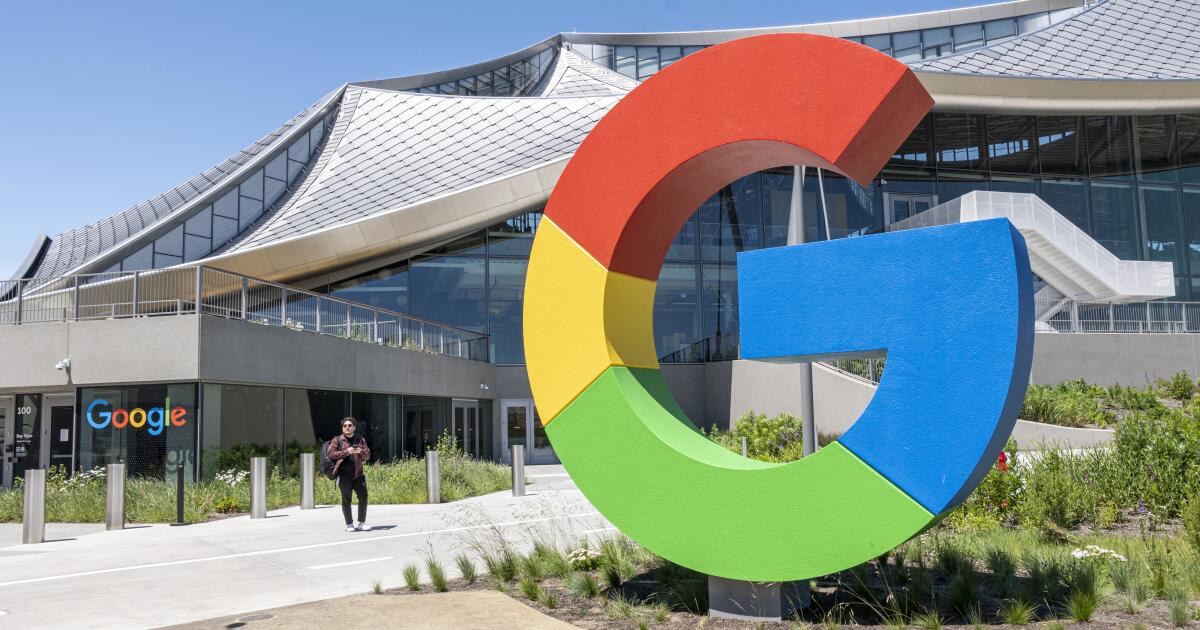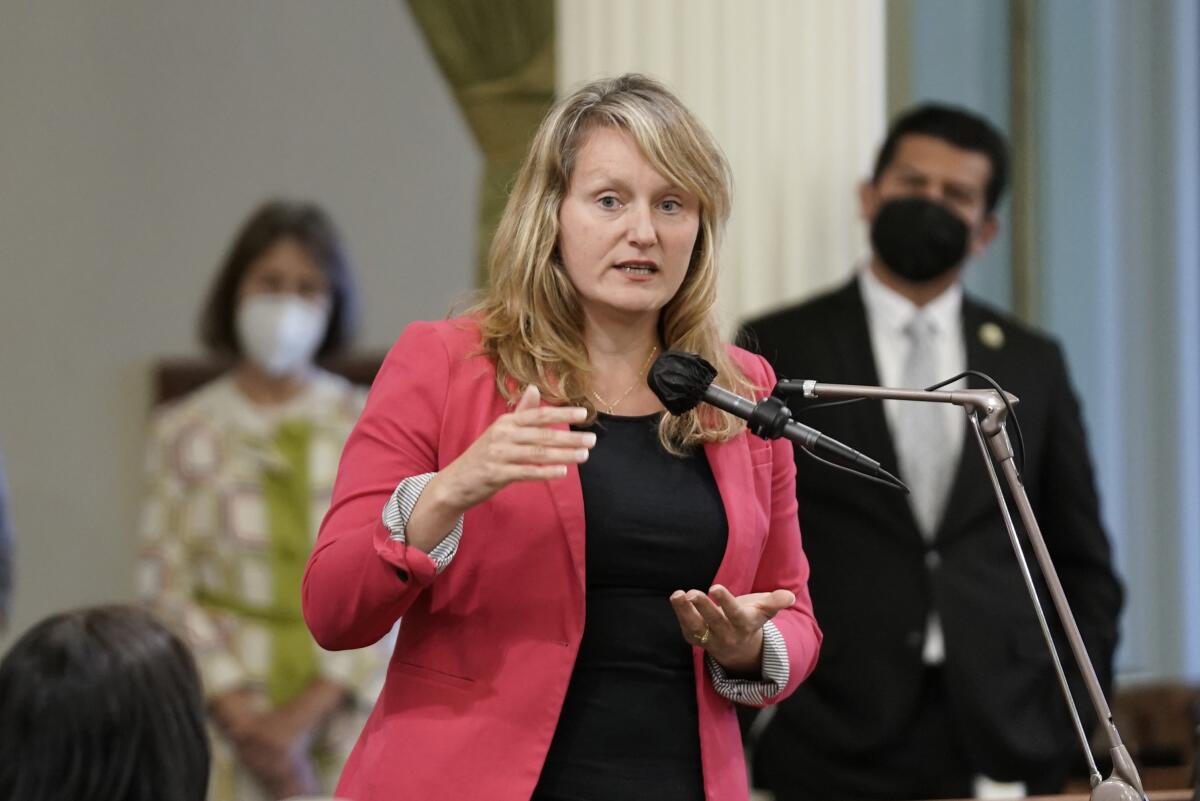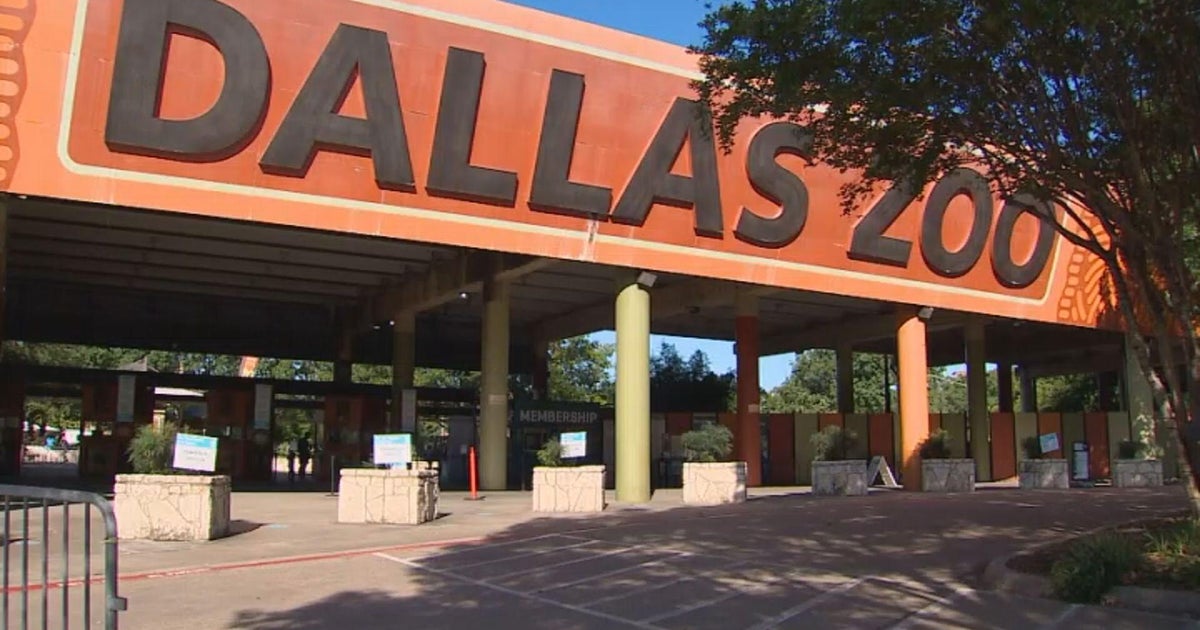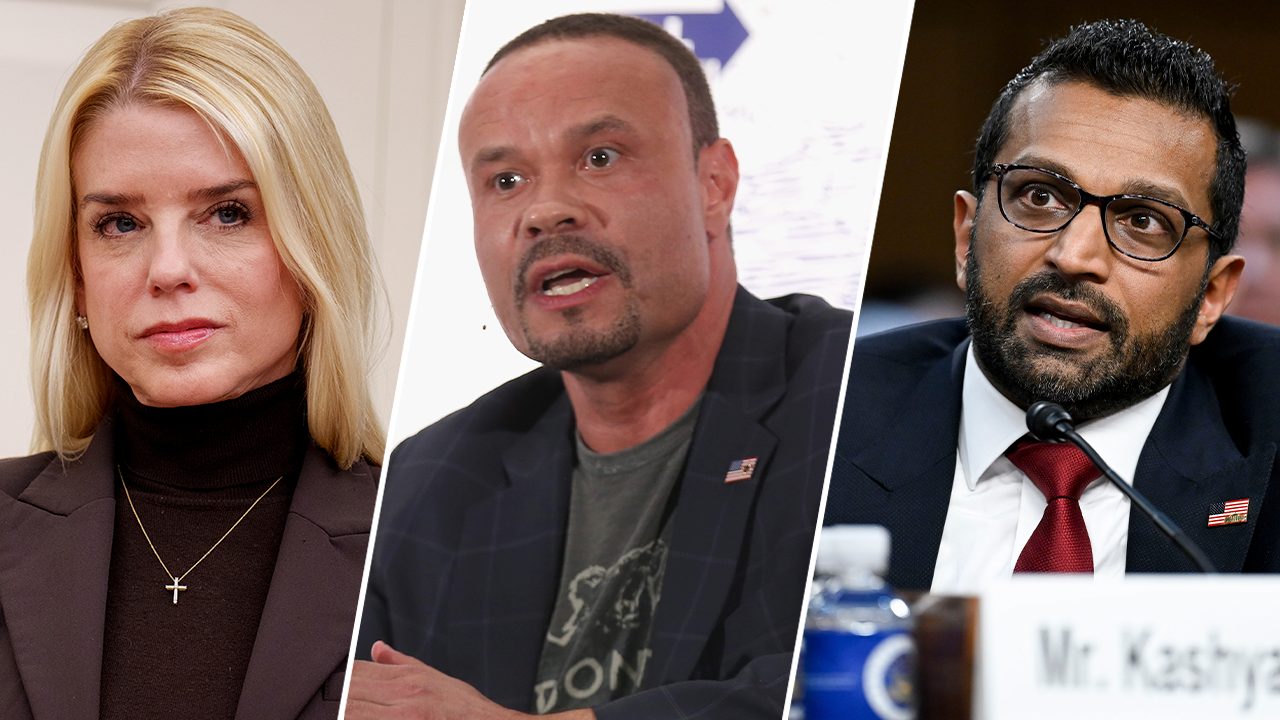Business
Why Google's lobbying in California skyrocketed this year

The 30-second video ad struck an ominous tone, urging Californians to tell their lawmakers to vote against legislation that would force Google, Facebook and other large platforms to pay news publishers.
“It’s a dangerous precedent that will drive up costs for small businesses and make it easier for politicians to raise taxes in the future,” the narrator says in the ad, which ran in June. “With inflation running high, we can’t afford another Sacramento tax increase.”
The ad stated that it was “paid for” by the California Taxpayers Assn., a nonprofit advocacy group, but it really was bankrolled by Google.
Between April and June, the search giant paid the association $1.2 million for advertising, filings to the California secretary of State show. The association confirmed that Google funded the ad campaign against the bill.
Tech companies strongly opposed Assembly Bill 886, known as the California Journalism Preservation Act.
The money appears to have been well spent. Lawmakers put the legislation on hold until 2024.
Google’s payment to the taxpayers group made up most of the record $1.5 million the company spent lobbying California lawmakers and regulators from January to September. During the same period last year, Google spent $187,434. The company spends an average of about $257,000 per year lobbying in California, according to a review of such expenditures from 2005 to 2022.
The massive surge reflects the growing efforts by tech companies to influence California lawmakers as they debate how to protect young people and journalists and other workers from the threats posed by social media sites, artificial intelligence and other emerging technology.
Bob Shrum, a longtime Democratic consultant and director of the Center for the Political Future at the University of Southern California, said political ads are one way companies try to sway lawmakers, but the strategy is not always effective.
Shrum, who listened to the California Taxpayers Assn. ad, said viewers might walk away with the impression that the price of their internet service will go up.
“They skirt the line of being factual,” he said. “At the same time, the ad is anything but a rounded, accurate portrait of what the controversy is all about.”
Google’s spending on lobbying in California outpaced that of Facebook parent company Meta, Amazon, Apple, and other multibillion-dollar companies, data from the California secretary of State show. The search giant’s lobbying spending lagged behind AT&T, Waymo (Google’s self-driving car unit) and McDonald’s, as well as major energy companies like Chevron.
Google’s lobbying efforts went beyond advertising. On June 28, California Gov. Gavin Newsom and two of his top staff members met with Google leaders at the company’s San Francisco office, according to filings to the secretary of State’s office.
A Google representative said the meeting was about the overall legislative landscape; Newsom’s office said it was related to an executive order about artificial intelligence that he went on to sign in September.
State Sen. Ben Allen (D-Santa Monica) also met with Google, the filings showed. Allen’s office said the senator and a legislative director who works on environmental policy toured the tech giant’s Mountain View campus in April to learn about sustainability and waste reduction.
“We regularly engage with lawmakers and regulators on a range of issues, including economic growth, small business support, cybersecurity and protecting online information, among other issues,” Bailey Tomson, a spokesperson for Google, said in a statement.
The company lobbied on a variety of bills during the last legislative session, including measures barring law enforcement demands for Google location data, protecting child safety on social media and regulating artificial intelligence.
One of the company’s biggest priorities: fighting a bill that would require tech giants to negotiate payment to news organizations for stories displayed on their platforms. The online platforms would pay a “journalism usage fee” to certain publishers.
Organizations that support the bill said it would help preserve democracy by funding local news outlets, which are grappling with drastic cuts and layoffs as they compete with tech companies for advertising dollars. Tech companies should pay publishers because they profit from their news content, helping to keep people engaged on their platforms, news advocacy groups such as the California News Publishers Assn. and News/Media Alliance say. (The Los Angeles Times is a member of both organizations and supports the proposed legislation.)
Meta spokesperson Andy Stone said in May that the bill would mostly benefit large publishers. The legislation “fails to recognize that publishers and broadcasters put their content on our platform themselves and that substantial consolidation in California’s local news industry came over 15 years ago, well before Facebook was widely used,” Stone tweeted.
Meta threatened to remove news from its platforms Facebook and Instagram if the California bill becomes law, a move the social media giant used in other countries that passed similar legislation. In 2021, Meta temporarily blocked news in Australia but reversed the decision after reaching a deal with the Australian government. In August, Meta blocked news in Canada.
Debate about AB 886 has continued since the legislative session wrapped in September. On Dec. 5, the California Senate Judiciary Committee held a four-hour hearing about the importance of journalism in the digital age. Chris Argentieri, president and chief operating officer of the L.A. Times, and Matt Pearce, a Times reporter and chair of Media Guild of the West, testified in support of the legislation.

Assemblymember Buffy Wicks (D-Oakland) introduced the California Journalism Preservation Act this year.
(Rich Pedroncelli / Associated Press)
At the hearing, Google Vice President of News Richard Gingras said the search engine helps drive traffic to digital publications and noted that the company also supports journalism in other ways, such as the Google News Initiative, which provides funding, resources and training.
“A link tax as proven elsewhere would be counterproductive, making it more difficult for users to find diverse sources of news, reducing the opportunity for news publishers to build new audiences and making it harder for Google to direct users to helpful content,” Gingras told lawmakers.
The insinuation that payments to news organizations in California would be a new tax has been a pivotal part of video ads against the Journalism Preservation Act. Political ads against AB 886, including the one aired by the California Taxpayers Assn., ran in June and July, when the bill faced a critical deadline in the Senate Judiciary Committee, data from Meta’s ad library show.
Advocacy group News/Media Alliance, which supports AB 886, pushed back against the ads’ claim that lawmakers are trying to impose a tax on tech companies.
“They distort reality, and they do a good job of it, because Google is a massive company with endless resources to be able to spend on creating messaging that’s false,” said Danielle Coffey, president and chief operating operator of the organization.
The California News Publishers Assn. and News/Media Alliance spent $161,519 on lobbying in California from January to September — far less than tech companies spent.
David Kline, a spokesperson for the California Taxpayers Assn., said ads are just one tool lobbyists use if legislation is moving quickly and they need to get the word out to a lot of people. The association’s ad against AB 886 has racked up 2.1 million views on Google-owned YouTube.
“It’s a giant state, where advertising is your only realistic option for doing that, and just by the nature of it, advertising is expensive,” he said. The taxpayers group wasn’t representing only Google but also other members that had concerns about the bill, he added.
Google and Meta are members of the Computer & Communications Industry Assn., which also ran ads against AB 886. From January to September, the trade group spent $1.3 million on lobbying, filings to the secretary of State’s office show.
Matt Schruers, president of the association, said the majority of the spending was related to political advertising.
Lawmakers’ decision to put the bill on hold until next year “is an acknowledgment of the fact that there are serious issues with the proposal and concerns that have yet to be resolved,” Schruers said.
Assemblymember Buffy Wicks (D-Oakland), who sponsored the bill, said political ads are a common strategy in Sacramento, especially by billion-dollar companies. Lawmakers put the bill on hold because it’s important that they get it done “right” rather than quickly, she said.
The extra time also allows lawmakers to see how similar legislation plays out in Canada, she said. Google, after threatening to block news in Canada, struck a deal with the Canadian government in November to pay news businesses $73.5 million annually to comply with a new law that requires tech platforms to pay publishers.
Wicks refuted the idea that the bill would impose a new tax, noting that there’s a different legislative process for tax increases, and it would require more votes.
“When you put out disingenuous ads like that, I assume some members got calls, but I think most members are savvy enough to know it’s just simply not a tax,” she said.
News advocacy groups also used advertising to increase support for the bill, but compared to tech industry spending, it’s “ a drop in the bucket,” Coffey said.
Ads from such groups that ran in October and November on Facebook included the face of Sen. Tom Umberg (D-Orange), the chair of the Senate Judiciary Committee.
“Sen. Tom Umberg has the opportunity to be the hero our democracy needs,” one ad by the California News Publishers Assn. says.
Umberg said he doesn’t spend a lot of time on social media and doesn’t recall seeing the ads. He said the legislation is complex, and he has concerns about how the bill would be enforced, along with its impact on minority groups and local publications, which is why lawmakers put it on hold.
He remains optimistic, though, that the bill will reach the finish line next year, and tech platforms will have “some of their skin in the game.”
“It is my view that there’s going to be a piece of legislation that’s going to get to the governor’s desk that is going to address the issue of the symbiotic relationship between social media and credible journalism,” Umberg said.

Business
'Superman' rescues DC at the box office with a $122-million debut

James Gunn’s “Superman” soared to the top of the box office this weekend, giving Warner Bros.’s DC Studios much-needed momentum in the superhero genre after a string of underperforming movies.
“Superman,” which stars David Corenswet as the Man of Steel, hauled in a robust $122 million in the U.S. and Canada. Globally, “Superman” brought in a total of $217 million.
The movie was a big swing for Burbank-based Warner Bros. and DC, costing an estimated $225 million to produce, not including substantial spending on a global marketing campaign.
“Superman” benefited from mostly positive critics reviews — the movie notched a 82% approval rating on aggregator Rotten Tomatoes. Moviegoers liked it too, indicated by an “A-” grade from polling firm CinemaScore and a 93% positive audience rating from Rotten Tomatoes.
The performance for “Superman” fell short of expectations from some analysts, who had projected an opening weekend of $130 million. Industry observers attributed that to heavy competition from other blockbusters, including Universal’s “Jurassic World Rebirth” and Apple and Warner Bros.’ “F1 The Movie.”
Shortly before its release, “Superman” came under fire from right-wing commentators, who criticized comments Gunn made to the Times of London about how Superman (created by a Jewish writer-artist team in the late 1930s) is an immigrant and that he is “the story of America.”
“If there’s any softness here, it’s overseas,” said industry analyst and consultant David A. Gross in his FranchiseRe newsletter, after describing the domestic opening as “outstanding” for a longrunning superhero franchise.
The movie generated $95 million outside the U.S. and Canada.
Analysts had raised questions about whether Superman’s reputation for earnestly promoting truth, justice and the American way would still appeal to a global audience, particularly as other countries have bristled at the U.S. tariff and trade policies enacted by President Trump.
“Superman has always been identified as a quintessentially American character and story, and in some parts of the world, America is currently not enjoying its greatest popularity,” Gross said.
The movie’s overall success is key to a planned reboot and refresh of the DC universe. Gunn and producer Peter Safran were named co-chairmen and co-chief executives of DC Studios in 2022 to help turn around the Warner Bros.-owned superhero brand after a years-long rough patch.
While 2013’s “Man of Steel,” directed by Zack Snyder, and 2016’s “Batman v Superman: Dawn of Justice” each achieved substantial box office hauls, they did not receive overwhelmingly positive reviews. 2017’s “Justice League,” which was intended to be DC’s version of Marvel Studios’ “Avengers,” was a critical and commercial disaster for the studio.
More recently, films focused on other DC characters such as 2023’s “Shazam! Fury of the Gods,” “The Flash” and last year’s “Joker: Folie à Deux” struggled at the box office.
With Gunn and Safran at the helm, the pair are now tasked with creating a cohesive vision and framework for its superhero universe, not unlike its rival Marvel, which has long consolidated control under president Kevin Feige (though its films and shows are handled by different directors).
Starting the new DC epoch with Superman also presented its own unique challenges. Though he is one of the most recognizable superheroes in the world, Superman’s film track record has been a roller coaster. Alternatively sincere, campy or gritty, the Man of Steel has been difficult for filmmakers and producers to strike the right tone.
Gunn’s version of “Superman” — still mostly sincere but a touch of the filmmaker’s signature goofy humor — worked for critics and audiences. It was a tall order, considering some fans still hold Richard Donner’s 1978 “Superman,” starring Christopher Reeve, as the gold standard.
“Pinning down ‘Superman’ has been a challenge,” said Paul Dergarabedian, senior media analyst at Comscore. “It’s been like Kryptonite for years for many filmmakers and producers to get it right.”
“Superman” bumped “Jurassic World Rebirth” to second place, where it collected $38.8 million domestically over the weekend for a total of $231 million so far. “F1,” Universal’s “How to Train Your Dragon” and Disney-Pixar’s “Elio” rounded out the top five at the box office this weekend.
Later this month, another major superhero movie will enter the summer blockbuster marketplace: “The Fantastic Four: First Steps,” from Walt Disney Co.-owned Marvel Studios.
Business
It's peak season in Malibu, but these small businesses are still struggling after the Palisades fire

Six months after the Palisades fire roared down Pacific Coast Highway, the Country Kitchen in Malibu is open for business, but many customers have yet to return.
The no-frills eatery features a few outdoor tables and ocean views, nestled in a narrow parking lot alongside a liquor store and gift shop. The restaurant, which opened in 1972, is literally a hole in the wall. It serves breakfast burritos all day and burgers out of a window.
It wasn’t destroyed by the fires but had extensive smoke damage. It was cut off from most of its customers for close to five months, waiting for the highway to reopen. Business is a lot better than it was a couple of months ago, but still well below what the restaurant would usually see this time of year.
“Things are better, but if you compare it to last year, it’s still probably 25% less business,” said Joel Ruiz, who has worked at the Country Kitchen for 40 years.
Up and down the coast, businesses that survived the flames are still hoping for a return to normalcy. As customers slowly return to a changed landscape, the small businesses that dot Pacific Coast Highway wonder how long it will take to get back to business as usual.
1. Joel Ruiz works at the Country Kitchen on PCH as businesses reopen after being closed due to the Palisades fire. 2. A painting of the Country Kitchen hangs on the wall of the roadside restaurant.
PCH was closed to nonresidents for five months following the Palisades fire, isolating the once-bustling businesses that catered to beachgoers and tourists.
According to the California Department of Forestry and Fire Protection, the Palisades fire charred more than 23,000 acres and destroyed more than 6,000 structures. The blaze burned the vast majority of homes along the ocean from Topanga Canyon to Las Flores Canyon.
Nearly 800 structures were lost in Malibu, including the Reel Inn, a seafood restaurant just a few miles down the road from the Country Kitchen. Other popular restaurants including Duke’s Malibu are still closed due to damage. Caffe Luxxe near Carbon Beach was closed for months before reopening in May.

Jefferson Wagner, owner of Zuma Jay’s surf shop, reopens after being closed due to the Palisades fire.
It should be peak summer season for Zuma Jay’s, which has been selling boards and wax to surfers since 1975. Instead, sales are about a third less than normal.
“It’s better, but not like it was last year at the same time,” Jefferson Wagner said. He couldn’t pay his four employees for months.

Wagner holds an old young photo of himself and his daughter.
Some estimates put the total cost of the Los Angeles area wildfires at $250 billion. Gaps or delays in insurance coverage have kept many from cleaning or rebuilding their property at the pace they hoped.
“We’re still trying to get back to what we had before,” said Malibu City Councilmember Doug Stewart, who was serving as mayor during the Palisades fire. “The store owners and restaurants are telling me that things have picked up considerably, but they’re still not back to what they’d expect to see for the summer.”
Stewart said most businesses in the community were spared from being burned to the ground but are still struggling to reopen and stay viable.
“It’s less of a rebuilding issue and more of a question of making sure that they’ve been able to survive,” he said.
The businesses neighboring the Country Kitchen in the strip mall along PCH have all had to adapt to the aftermath of the fire. Even the view from the parking lot is different, with vast stretches of the ocean now visible where homes had previously stood.

Carter Crary, co-owner of scuba shop Malibu Divers, poses for a portrait shortly after his business reopened.
The scuba shop Malibu Divers officially reopened May 23, the same day Gov. Gavin Newsom reopened PCH. Co-owner Carter Crary came into the shop every day while the road was still closed, serving an occasional customer. Business was down about 90% for more than four months.
“There’s been a definite change since the highway reopened,” he said. “We are not yet where we should be for this time of year, but we’re on a trajectory that has us heading in the right direction.”
Malibu Divers doesn’t have business interruption insurance but was able to offset some of the losses caused by the fire with a Small Business Assn. emergency loan. Crary estimated his business has lost out on $150,000 in revenue since January. The shop earns between $500,000 and $1 million in a normal year.
Crary employs around 12 staff members, but he’s currently not able to pay or bring in his in-store employees. The dive shop, which offers rental gear and scuba lessons, opened in 1969 and is usually busiest between May and September.
Business has been further impacted because people aren’t diving in the areas where the Palisades fire burned. Most divers are going north for cleaner waters, Crary said.
Malibu’s scenic beaches, now contaminated with heavy metals and debris from the wildfire, usually attract customers to Roxanne Jensen’s souvenir shop, Blue Malibu, located a few doors down from Malibu Divers.
“It’s been very slow because people don’t know we’re open,” Jensen said. “We have to be patient. As long as the ocean is there, the customers will come back.”
Jensen closed her store for five months after the fire destroyed the merchandise on display and drove away tourists. July and August are typically big months for sales, said Jensen, who runs the shop with her husband.
Jensen’s landlord is allowing her to pay half her usual rent, but even that is hard to come up with, she said. She opened her shop 10 years ago and sells sweatshirts, swimwear and gifts.
Jensen said she has faith the Malibu community will rebound, like it has several times in the past after disastrous wildfires and landslides. She stood among her merchandise on a recent quiet Wednesday and was cautiously hopeful.
“Maybe next summer will be normal,” she said.
Though the Country Kitchen employees had to stay home with no pay for months, they are back now, serving chili cheese fries, omelets and buffalo burgers.
“People love this place,” Ruiz said, standing in front of spot where he has worked most of his life. “We had customers calling who wanted to come in, but for a long time they weren’t able to.”
Business
Big buildout begins at Port of Long Beach amid global trade uncertainty

A major terminal operator at the Port of Long Beach broke ground on a $365-million expansion project Friday, even as activity at the port has cooled recently in response to rising tariffs.
The terminal operator International Transportation Service plans to fill in a 19-acre area of water and extend the existing quay by 560 feet, which would allow larger ships to dock at the port.
The expansion would boost cargo-handling capacity by 50% and create jobs, the company said at a ground breaking ceremony Friday. The new terminal would be able to accommodate two vessels each capable of carrying 18,000 cargo containers.
“There is a demand coming for bigger ships,” said ITS Chief Executive Kim Holtermand. “This project strengthens America’s supply chain by investing in infrastructure the right way.”
The leap comes after container movement through the Port of Long Beach dropped sharply in recent months.
President Trump’s frequent changing of tariffs on countries including key trade partners Canada and Mexico have stunted global trade, prompting concern from public officials, laborers and business leaders.
The Port of Los Angeles has also experienced a slowdown and reported that job opportunities at the port were down by half in June.
The number of containers processed at the Port of Long Beach in May is down more than 8% from last year, and loaded containers being shipped out of the port, known as loaded exports, are down more than 18%. At the Port of Los Angeles, loaded exports dropped 4% from last May.
Shipping underway at the International Transportation Service terminal, which is undergoing a $365-million terminal expansion.
(Allen J. Schaben / Los Angeles Times)
Port of Long Beach Chief Executive Mario Cordero said the port is capable of progress in times of crisis and has learned from its perseverance through the pandemic.
“We are most definitely in a period of uncertainty in this industry,” Cordero said. “But there is one certainty here at the port. We will continue to build,” he said.
A large group gathered to celebrate the start of the project in Long Beach, including Long Beach Mayor Rex Richardson and longshore and warehouse workers union ILWU 13 President Gary Herrera.
-

 Politics1 week ago
Politics1 week agoVideo: Trump Signs the ‘One Big Beautiful Bill’ Into Law
-

 World1 week ago
World1 week agoRussia-Ukraine war: List of key events, day 1,227
-

 Education1 week ago
Education1 week agoOpinion | The Ugliness of the ‘Big, Beautiful’ Bill, in Charts
-

 News4 days ago
News4 days agoVideo: Trump Compliments President of Liberia on His ‘Beautiful English’
-

 News1 week ago
News1 week agoDeath toll from Texas floods rises to 24 as search underway for more than 20 girls unaccounted for | CNN
-
Business7 days ago
Companies keep slashing jobs. How worried should workers be about AI replacing them?
-

 News7 days ago
News7 days agoTexas Flooding Map: See How the Floodwaters Rose Along the Guadalupe River
-

 Technology1 week ago
Technology1 week agoCyberpunk Edgerunners 2 will be even sadder and bloodier
















